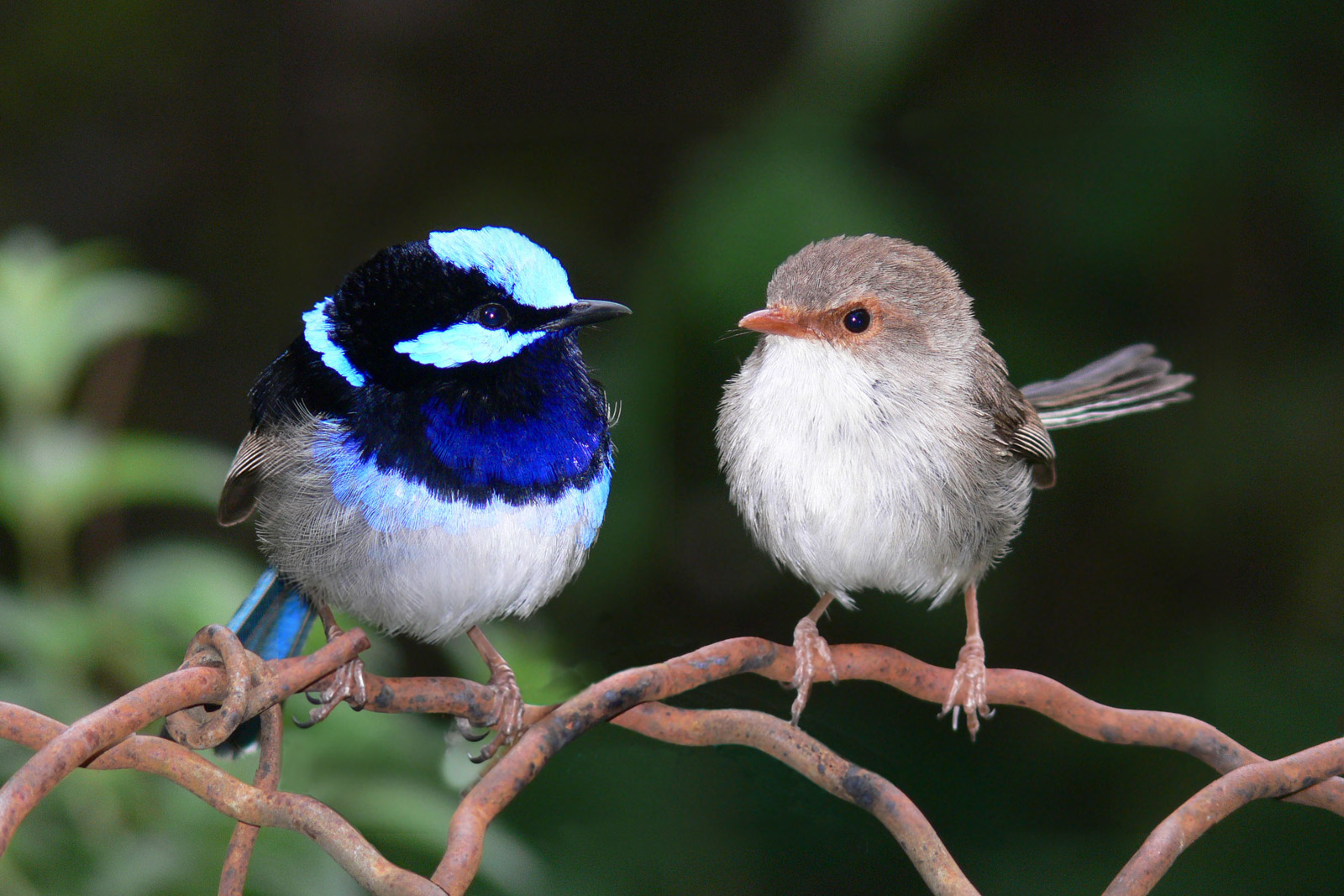
A splendid -- and to parents and young'n's, painfully relevant -- bit of research news from Science :
Every parent can use a little help now and then, and birds are no exception. Some species even use nannies to feed and care for chicks. These 'daycare' babies don't seem to do any better than offspring raised by mom and dad alone do, however, and researchers have struggled to figure out how birds benefit from the assistance. A new study has cracked the mystery: The nannies apparently allow mother birds to save their strength so they can lay eggs later on.
If you've a Science subscription you can read the news story or t the actual paper. Sans subscription you can still read the abstract or, elsewhere, a web site about the lovely birds in the study, superb fairy-wrens, pictured above -- male at left, female at right.
Image via Wikipedia Commons.
